Here's 9 LGBTQ+ Directors from Old Hollywood and the Lives They Lived
04/21/22
DoloresQuintana
By continuing to use our site, you agree to our Privacy Policy and Terms of Use.
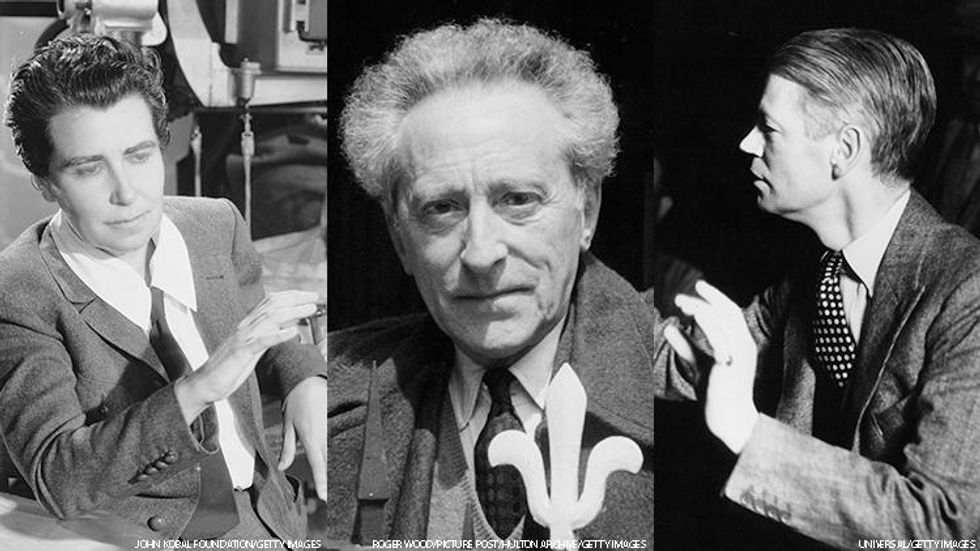
Directors often get a lot of credit when a film is successful or blame if it fails. But the reality is that throughout cinematic history, out LBGTQ+ artists and women haven't been allowed hold the prized gig. Even now, it's still rare for an out director to get a chance to direct a film and even more rare that one gets nominated for an Academy Award. However, a close examination of the past shows the work of LGBTQ+ directors back through the Silent Era. And not only were they working, but these creatives were in high demand, helping to craft what we know of as Old Hollywood.
When most think of Old Hollywood, they are usually thinking of a timeframe in the 1930s and 1940s. But Old Hollywood generally extends from the Silent Era up to the 1950s before the French New Wave really got started. It is this categorization we've used for the purposes of this list.
LGBTQ+ film artists and craftspeople frequently worked within the film industry without hiding that they were LGBTQ+, but not necessarily speaking out that they were. Their orientation was considered an "open secret," and as such allowed them to progress. Some hid their orientation, but none of them were allowed to live openly in the ways many live today.
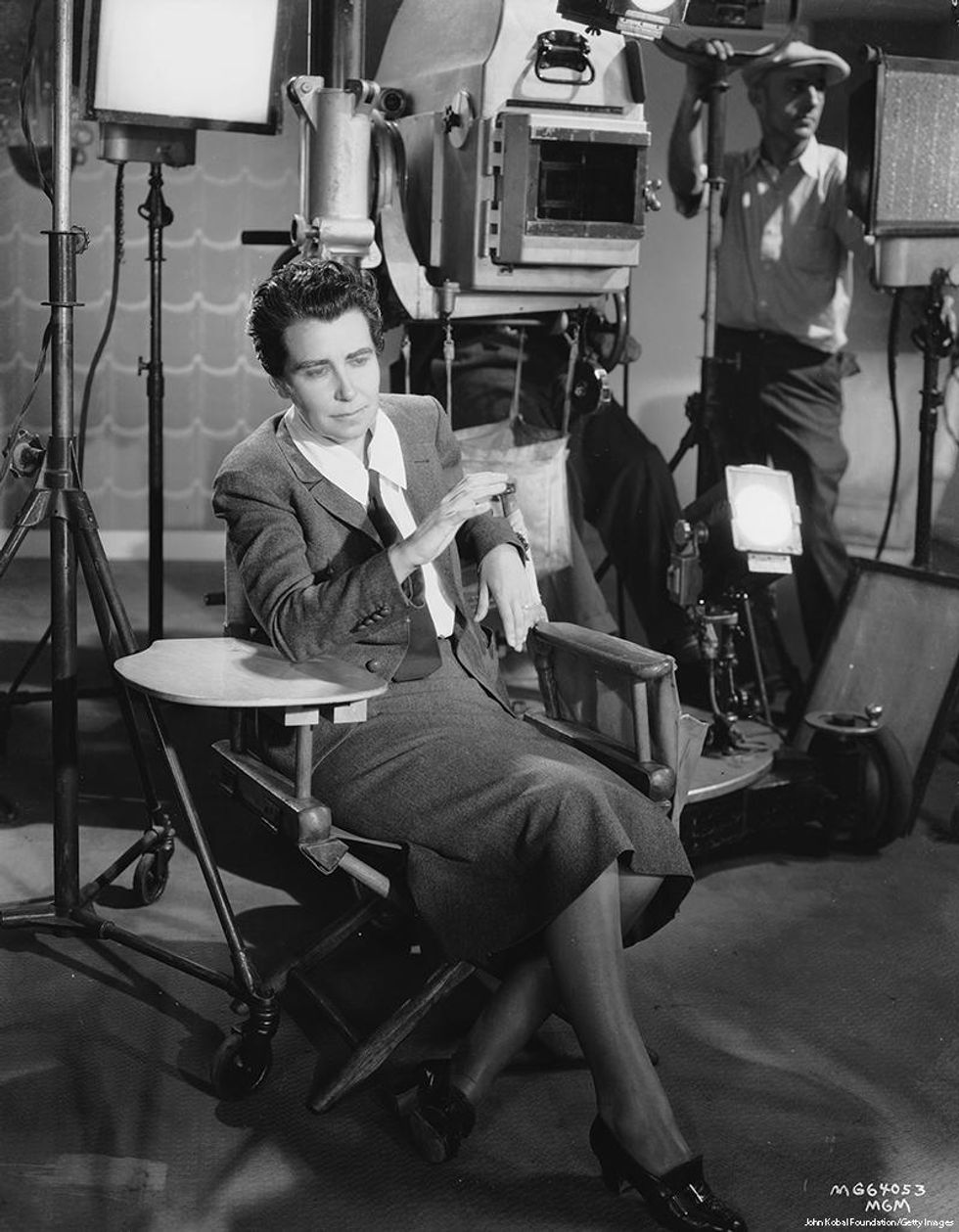
Dorothy Arzner (Born: January 3, 1897 - Died: October 1, 1979) was the only female director in Hollywood from 1927 until she retired in 1943. After World War l, she worked her way up through the film studio ranks as a script typist, reader, script supervisor and finally as a cutter and editor of films. She directed her first film in 1927 after forcing Paramount to advance her to the director's chair when she received an offer to direct from Columbia. Arzner boldly told the New York head of studio Walter Wanger, who offered her a spot in the scenario department: "Not unless I can be on a set in two weeks with an A picture. I'd rather do a picture for a small company and have my own way than a B picture for Paramount."
Arzner's orientation as a lesbian was an open secret. While she never admitted it publicly, the artist wore suits with pants which was normally considered shocking at the time. She had relationships with women -- some were actresses in her films -- but since she was so talented and successful, no one could deny her. Arzner was the first woman to join the director's guild as well as the first (and for decades sole) woman to enjoy a long and successful career as a director in Hollywood until more women entered the field in the 1970s. Arzner lived with her partner Marion Morgan, a choreographer, for forty years. Their home, designed by Morgan, is part of the Los Angeles Conservancy as a historical landmark. She was also said to have invented the boom mike during the filming of The Wild Party, the remake of the silent film that she had edited. That also meant that Arzner was the first woman to direct a sound film.
Arzner gets credit for launching the careers of such beloved stars as Katherine Heburn, Lucille Ball and Rosalind Russell. Her best known films are Dance, Girl Dance, Christopher Strong, and Craig's Wife. After she retired from filmmaking, she was a film school professor at UCLA and Frances Ford Coppola was one of her graduate students. Arzner encouraged the young director and he still reveres her name to this day.
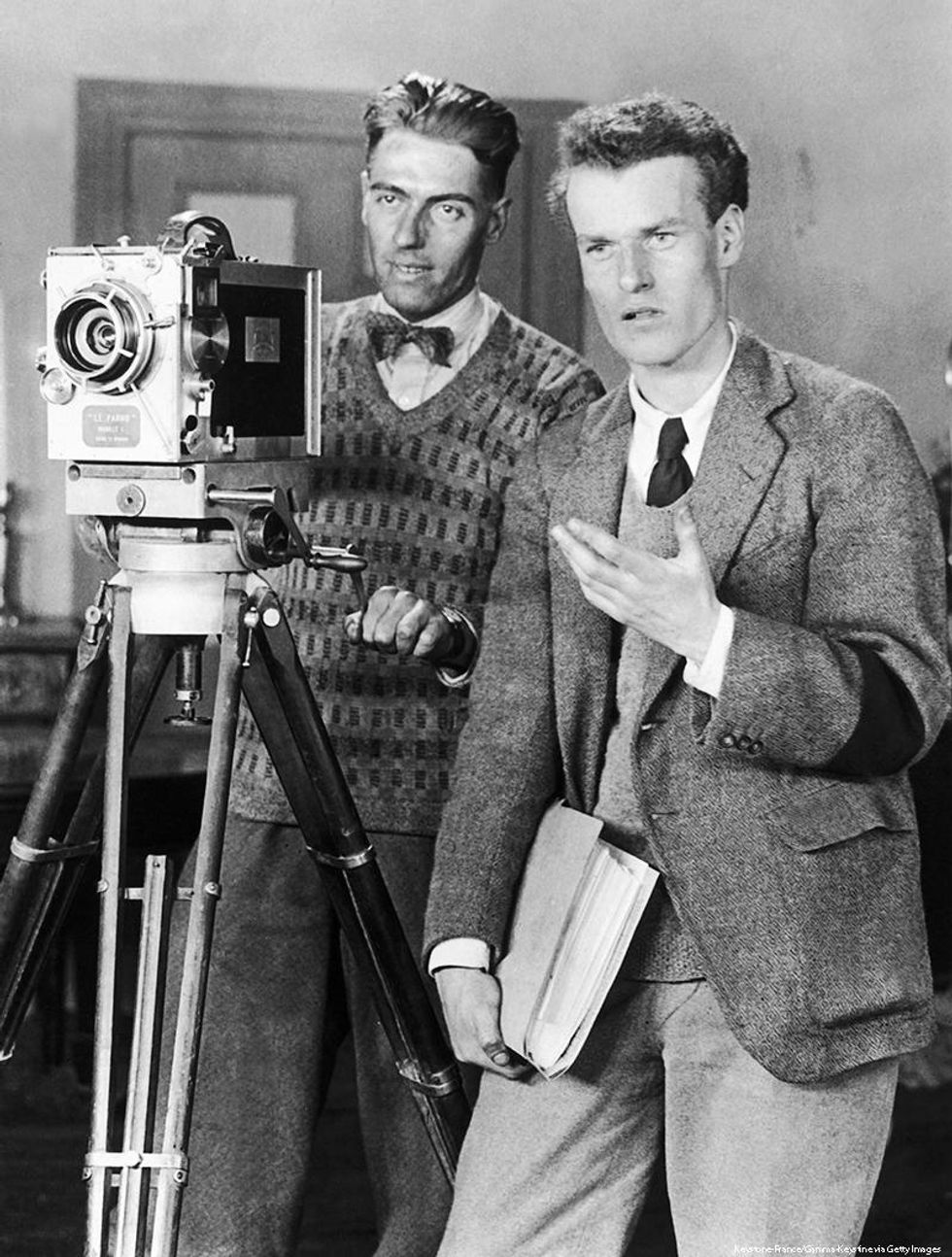
Anthony Asquith (Born: Nov. 9 1902 - Died: Feb. 20, 1968) was the son of H.H. Asquith, Prime Minister of England from 1908 to 1916 and grand uncle of Helena Bonham Carter. While not as well known today, Asquith expertly directed his most well known films "Pygmalion", "The Importance of Being Earnest" and "The VIPS" with Richard Burton and Elizabeth Taylor. Asquith directed a grand total of 37 feature films.
After Asquith finished his schooling, he went to Los Angeles and stayed at the home of Hollywood sweethearts Douglas Fairbanks and Mary Pickford for six months. There, he got a film education at the studios while watching how films were made and by meeting luminaries like Charlie Chaplin, Ernst Lubitsch and Lillian Gish. Like Arzner, he worked his way up in the film company British Instructional Films, first as a stunt double, assistant director and script doctor. While Asquith is now considered the director of "Shooting Stars" in 1927, the film was originally credited to A.V. Bramble. He made three other silent films in his name for BIF before leaving for Gainsborough Pictures and then to Alexander Korda's London films where he made "Moscow Nights". "Shooting Stars", a meta-film about the film industry, was considered a film that was as important as similar films by Alfred Hitchcock and Michael Powell by film historians. It was many years later that a British film critic, Raymond Durgnat said that "Shooting Stars" "out-Hitchcocks Hitchcock, before Hitchcock became Hitchcock".
Asquith was one of the foremost interpreters of the finest and most popular British and Irish playwrights, Oscar Wilde, George Bernard Shaw and Terrance Rattigan. He was known as a superb craftsman as a director and a loveable and unfailingly gentle and polite man.
He was the first British director to join a trade union and helped get better pay for below the line crew members. According to family friend Jonathan Cecil, he repressed his orientation throughout his life and was a heavy drinker.
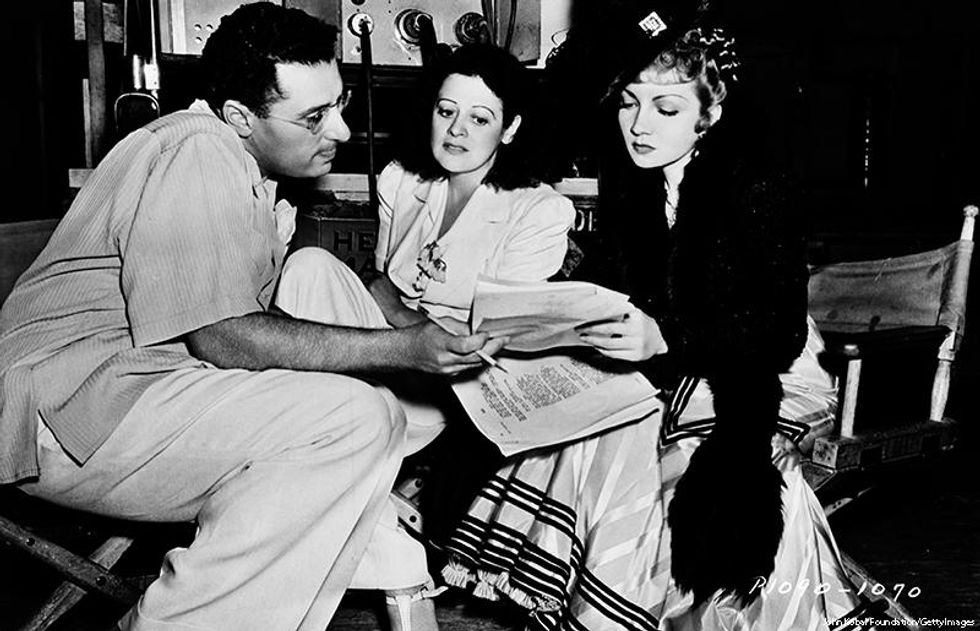
George Cukor (Born: July 7, 1899 - Died: Jan. 24, 1983) was an incredibly successful director whose orientation never kept him from directing important studio films. He first directed a film in 1931 and continued his career for 50 years. He directed 50 films and was uncredited or otherwise left the production on 12 other films. He was nominated for the Academy Award for Best Director five times for "Little Women", "The Philadelphia Story", "A Double Life", "Born Yesterday" and "My Fair Lady". Cukor won the Best Director Oscar for his work on My Fair Lady. Some of his other and most famous films are "The Women", "Gaslight" and the remake of "A Star Is Born", with James Mason and Judy Garland.
Cukor began with a career in theater in New York and worked his way up, starting from a job as an assistant stage manager and graduating to forming a production company that became Cukor-Kondolf Stock Company and directing six Broadway productions. He worked with Bette Davis and she claimed to have been fired, so he never worked with her again.
Hollywood came calling and Cukor signed up for a six month apprenticeship. He became a dialogue coach, then a dialogue director and then a co-director on three films. Cukor was a gay man who never denied that he was LGBTQ+. He was arrested on "morals charges" with actor William Haines after the two were assaulted by navy sailors in Long Beach in the 1930s according to his biographer Patrick McGilligan. He enlisted in the Signal Corps during World War ll and never rose above the rank of private. He always felt that his orientation kept him from receiving any commendations or promotions. He made uncredited contributions to two of the most popular films of the era "Gone With The Wind" and "The Wizard of Oz". He coached Vivien Leigh and Olivia de Havilland privately after he was fired as director in addition to removing Garland's blonde wig. He also encouraged her to act in a more realistic fashion and altered Margaret Hamilton's makeup and hair before leaving the film.
His home was the social gathering place of many out members of Hollywood and he had friendships with many of the top stars and craftspeople of the era. Spencer Tracy and Kathrine Hepburn both lived on his estate.
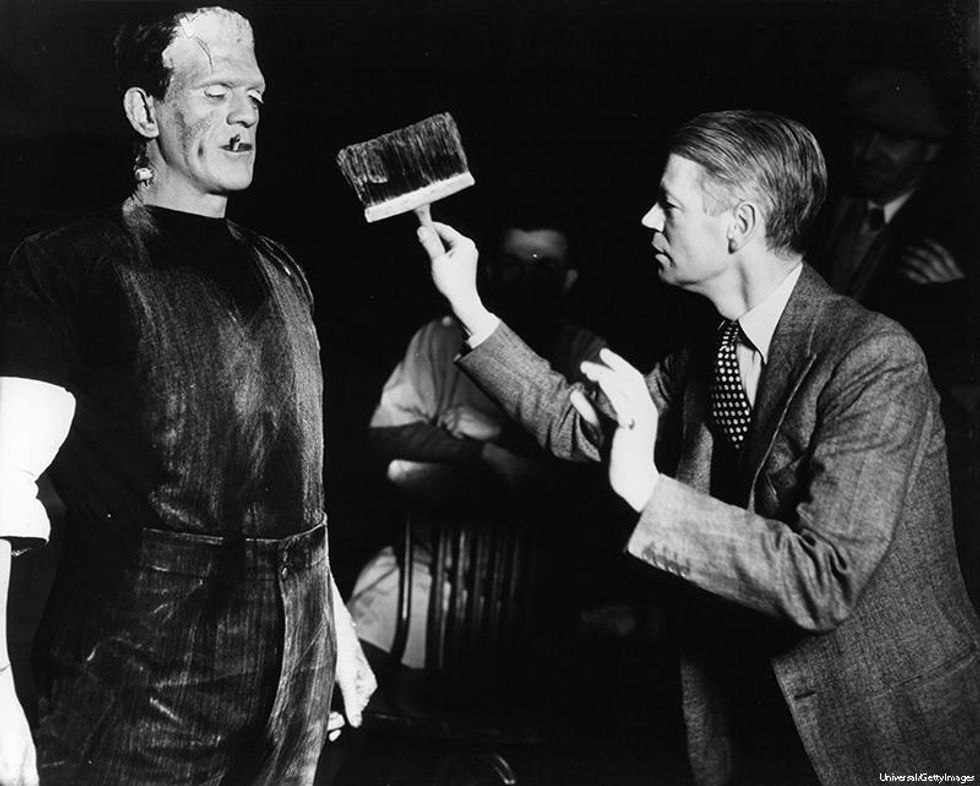
James Whale (Born July 22, 1889 - Died May 29, 1957) was a stage director who came to Hollywood to direct his famous and successful stage play, "Journey's End". He had cast an unknown actor, at the time, named Laurence Olivier in the play in England. Colin Clive, who later was to star in Whale's films in Hollywood, took over the role when Olivier left the play. Whale also worked his way through being an actor, set designer, and builder before becoming a stage manager and finally a director. During this time, he became involved with and engaged to stage and costume designer Doris Zinkeisen for a year while living as a gay man in public.
He came to Hollywood and was hired by Paramount Pictures to act as a dialogue director as films transitioned to sound. While at Paramount, he first met his long term partner, producer David Lewis. Whale was hired by Howard Hughes at RKO to direct the scenes that were added to Hughes' film "Hell's Angels" to make it into a "talkie" and producers of "Journey's End" realized that his experience with the successful stage versions of the play made him the right director to make the film version of the play. They were correct and "Journey's End'' was wildly successful critically and at the box office. Whale lived his life in Hollywood as a gay man similarly to Cukor, as an open secret that he made no effort to hide. Whale and David Lewis lived together in Los Angeles and their relationship, which started in 1930, lasted until 1952.
He is perhaps most famous for the classic horror films that he directed for Universal: "Frankenstein" "The Invisible Man", and "The Bride Of Frankenstein" which many consider his masterpiece, but he also directed the first full sound adaptation of the musical "Show Boat" that starred Irene Dunne and Paul Robeson. New York Times film critic Frank S. Nugent called Whale's "Show Boat", "one of the finest musical films we have seen". Despondent and in ill health after his career in Hollywood came to an end, Whale died by suicide in his pool at his home in the Pacific Palisades. The story of the end of his life was made into the fictionalized film "Gods And Monsters'' based on the book "The Father of Frankenstein" by Christopher Bram. Even though Lewis and Whale were estranged when Whale died, Lewis eventually released the contents of Whale's suicide note. After Lewis' death, his executor and Whale's biographer, James Curtis has Lewis' ashes laid to rest across the aisle from where Whale's ashes were interred.
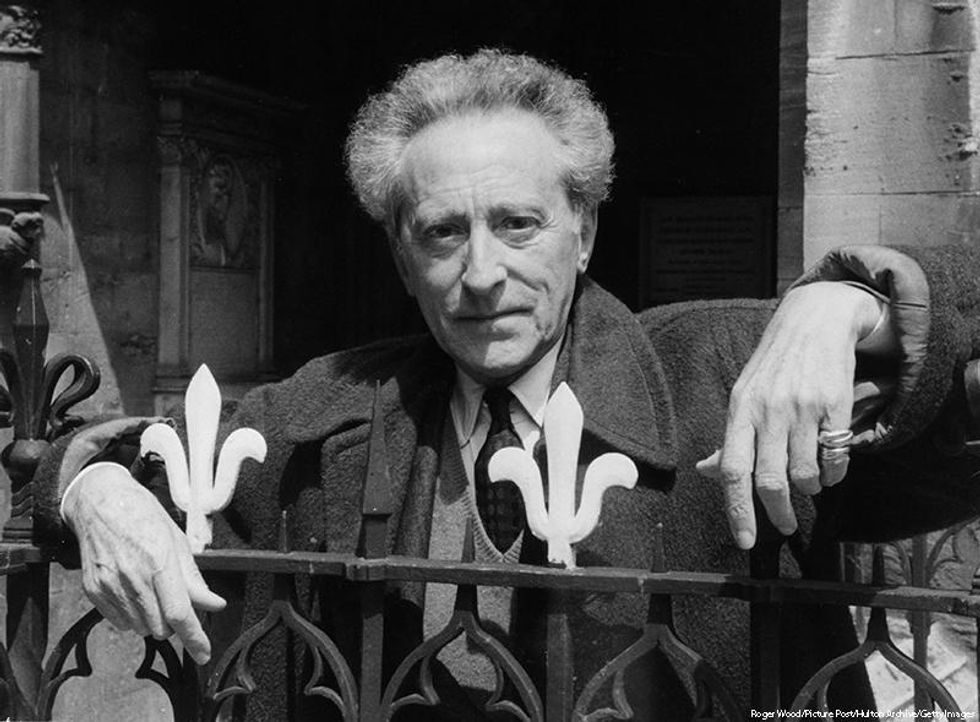
Jean Cocteau (Born: July 5, 1889 - Died: Oct. 11, 1963), French poet, artist, illustrator, playwright, author, critic and director that was constantly creating in different artistic fields. Cocteau was part of the avant garde, Dadaist, and surrealist art movements but he was also a filmmaker. He made the black and white classic "Beauty and the Beast'' in 1940, but made his first feature in 1930. Cocteau always considered himself a poet.
While he never fully acknowledged it, Cocteau wrote "Le Livre Blanc" or "The White Paper", which many consider a confession of his orientation as a gay man, but that one author, Rictor Norton, sees as a treatise on homophobia. Cocteau included "Le Livre Blanc'' in his official bibliography that was part of his set of "Complete Works". Like Arzner, Cukor and Whale, Cocteau lived his life as an LGBTQ+ artist as an open secret. His longterm lovers were Jean Marais and Edouard Dermit. Jean Marais was considered Cocteau's muse and starred in "Beauty and the Beast" and "The Eagle With Two Heads", after Cocteau discovered him working in a play.
Cocteau came to directing films, as so many on this list have, through the theatre as a playwright. His play "Orphee" was his first full work of theatre and came to the stage in 1926 and he wrote the libretto for Igor Stravinsky's opera-oratorio, "Oedipus Rex". Four years later, Cocteau made his surrealist first feature, "The Blood of a Poet". "Beauty and the Beast" followed in 1946. Cocteau is credited with 11 films, some of which have been lost or were unreleased like "Jean Cocteau Addresses the Year 2000", "Testament of Orpheus", "Les Parents Terribles", based on his own parents, and "The Eagle With Two Heads".
He was a fan of Kenneth Anger's film "Fireworks". He introduced avant garde concepts to French filmmakers through his work and wrote and directed a total of six films as well as serving as a Red Cross ambulance driver during World War l and all of his other accomplishments.
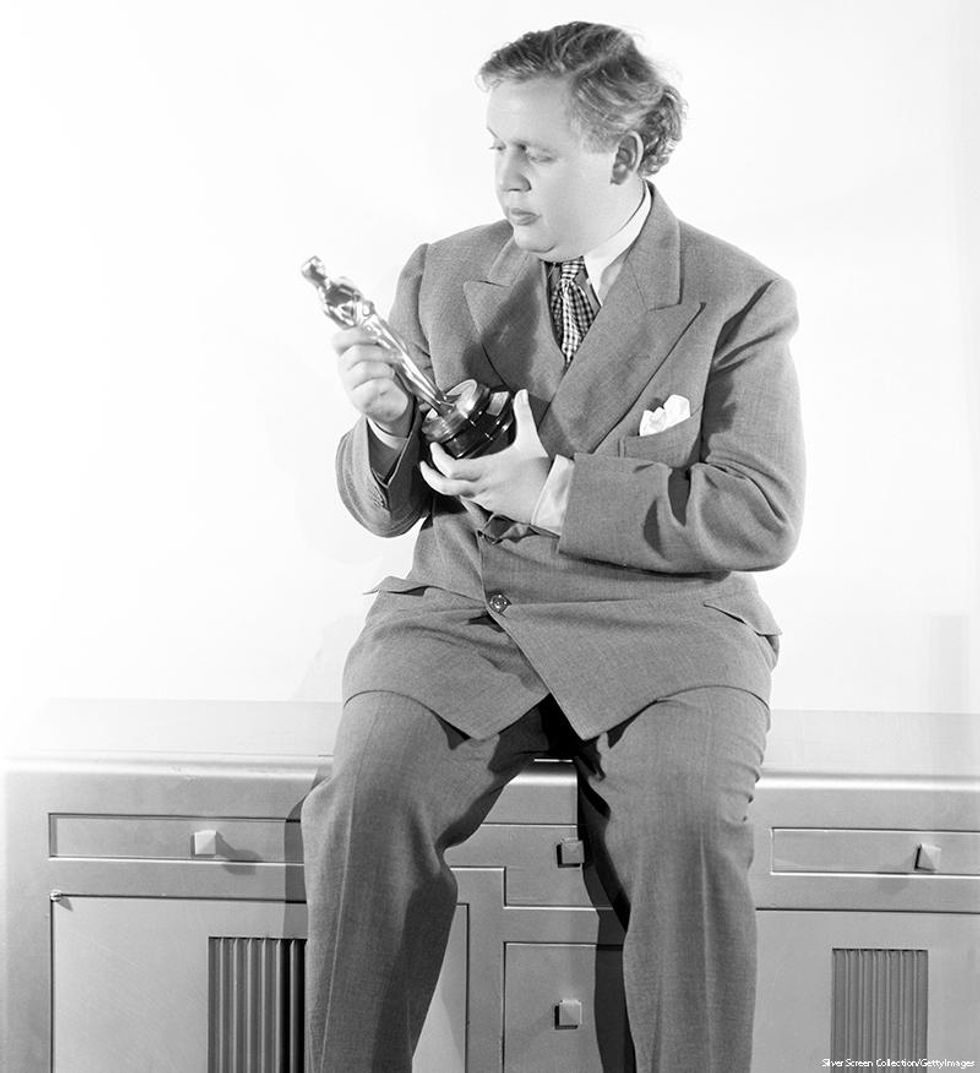
Charles Laughton (Born: July 1, 1899 - Died: Dec. 15, 1962) was better known as the actor who played Captain Bligh in Mutiny On The Bounty, Quasimodo in The Hunchback Of Notre Dame, and Henry The Vlll in The Private Life of Henry Vlll for which Laughton won an Academy Award for Best Actor. But, in addition to this work, Laughton made one film as a director: the gorgeous masterpiece The Night Of The Hunter. The film is undoubtedly a classic today, but was a failure upon release. That's the reason that Laughton only made one film. It has one of Robert Mitchum's most chilling performances as a villain. Laughton was married to Elsa Lanchester for most of his life and he was bisexual. As an actor, it was far too dangerous to his career to not be married, but he and Lanchester had a real relationship and sometimes Laughton, a very kind man, asked for help from a friend in dealing with his wife when she was angry according to Scotty Bowers in the documentary Scotty Bowers and the Secret History of Hollywood.
Laughton trained at the Royal Academy of Dramatic Art in England and made his debut on the theatre stage as a professional actor in 1926. He met his wife Elsa Lanchester when they co-starred in a play in 1927 and he spent the rest of his life with Lanchester and working as a film and theatre actor. Laughton also directed plays towards the end of his life. His orientation was confirmed by his biographer Charles Higham in Charles Laughton: An Intimate Biography and Cameron Crowe's book Conversations With [Billy] Wilder.
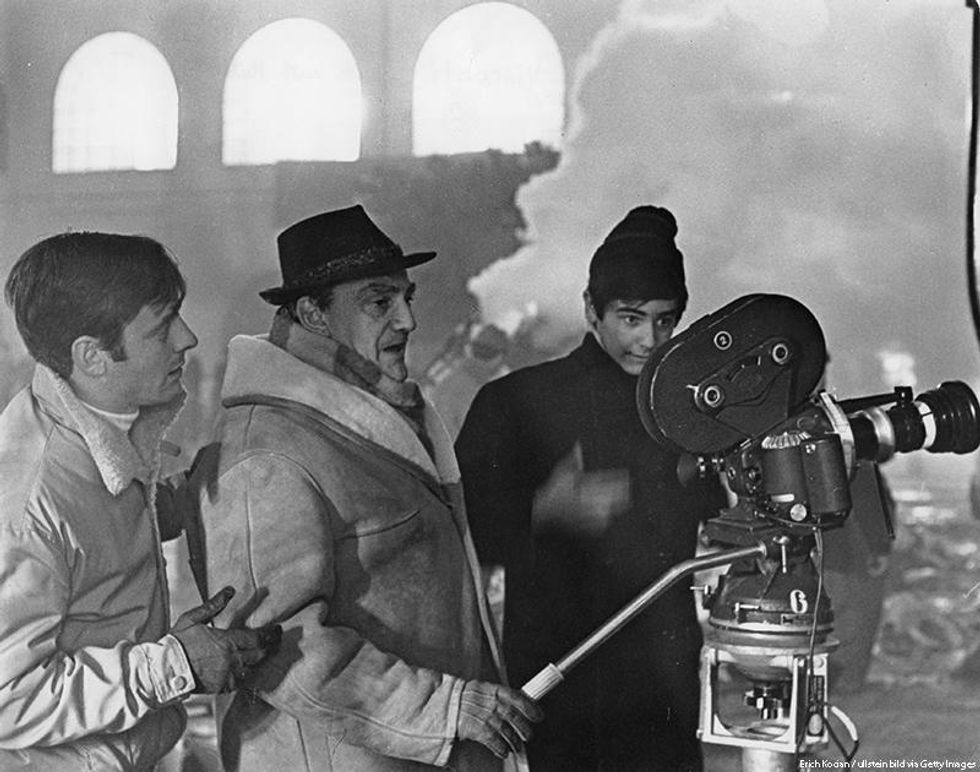
Luchino Visconti (Born: Nov. 2, 1906 - Mar. 17, 1976) was Italian royalty, The Count of Lonate Pozzolo, and one of the fathers of neo-realism. Visconti made films starting in 1943 with Obsessione and concluding in 1976 with his film The Innocent. He wrote and directed 14 films. His career began after the war when he worked as a set dresser for Jean Renoir's film A Day In The Country and after he was nearly executed by a firing squad for being a partisan working against the fascist government with the Italian Resistance. Coco Chanel interceded with Renoir to get Visconti the job and after a trip to Hollywood, Visconti worked for Renoir's on a second film.
Visconti made four very influential films: Rocco And His Brothers, The Leopard, The Damned, and Death In Venice. The Damned is possibly his best known film and is frank in its examination of subject matter of homosexuality, incest, rape and pedophilia. The Damned was also the first time that Visconti was nominated for an Academy Award for Best Screenplay even though the film was rated X in the United States. He didn't try to hide his orientation later in his life though he was a devoted Catholic. He famously said of the seeming paradox between his sexuality and his devout Catholicism: "I am a Catholic. I was born a Catholic, I was baptized a Catholic. I cannot change what I am, I cannot easily become a Protestant. My ideas may be unorthodox, but I am still a Catholic." He wasn't as open with his relationship with photographer Horst P. Horst in 1936, but did not hide his relationships with Franco Zefferelli, Udo Kier and Helmut Berger later on.
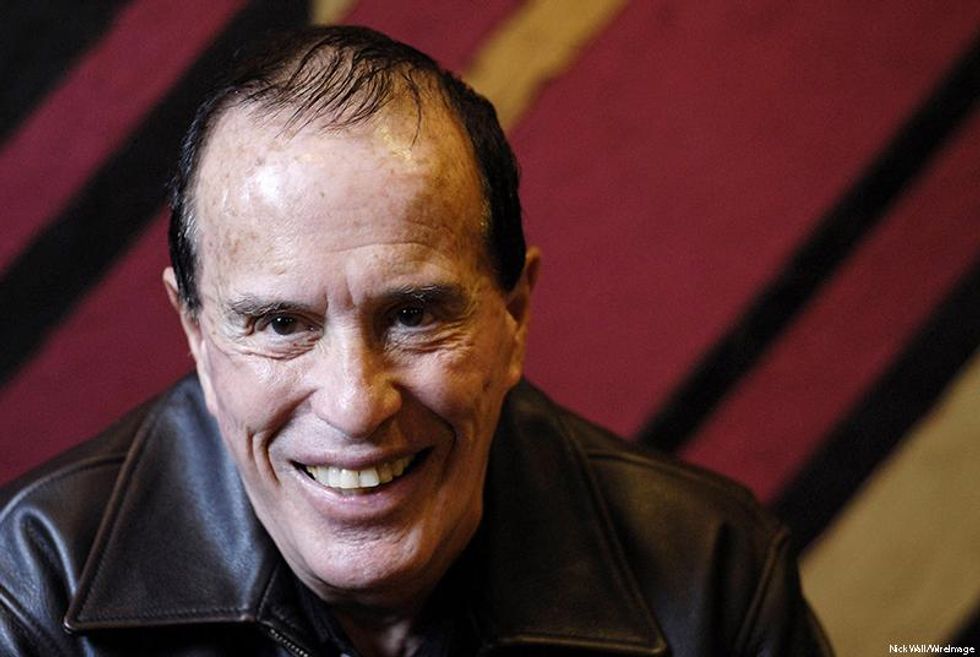
Kenneth Anger (Born: Feb. 3, 1927) is a director who started creating films as a child. All of Anger's films are shorts and some of them were screened while he was still in high school. The film that he made after he discovered his orientation and studying film at USC was the homoerotic "Fireworks" in 1947. Fireworks certainly caused a stir as he was arrested on obscenity charges after it screened. The case went all the way to the Supreme Court of California, which ruled that the film was art and not pornography.
Anger later formed the small film distribution company Creative Film Associates (CFA) with Curtis Harrington after they met. He became friends with Jean Cocteau while in Europe after the director wrote him a letter praising "Fireworks". He also was friends with sexologist Dr. Alfred Kinsey who was also a fan of "Fireworks". Anger is still alive. After almost two decades of inactivity during which he sold the video rights to his films, he resurfaced with a number of new films in 2000. Anger has long been fascinated with the occult and the teaching of Aleister Crowley and Crowley's belief system Thelema to which Anger is an adherent.
Anger has directed 37 films. Perhaps the best known of them are "Scorpio Rising'', "Lucifer Rising'' and "Inauguration of the Pleasure Dome''. Mark Allen Svede at the gltbq Encyclopedia said, about Anger's work, "Kenneth Anger occupies an important place in the history of experimental filmmaking. His role in rendering gay culture visible within American cinema, commercial or otherwise, is impossible to overestimate." Anger has been noted as a influence on such filmmakers are Martin Scorsese, David Lynch and John Waters.
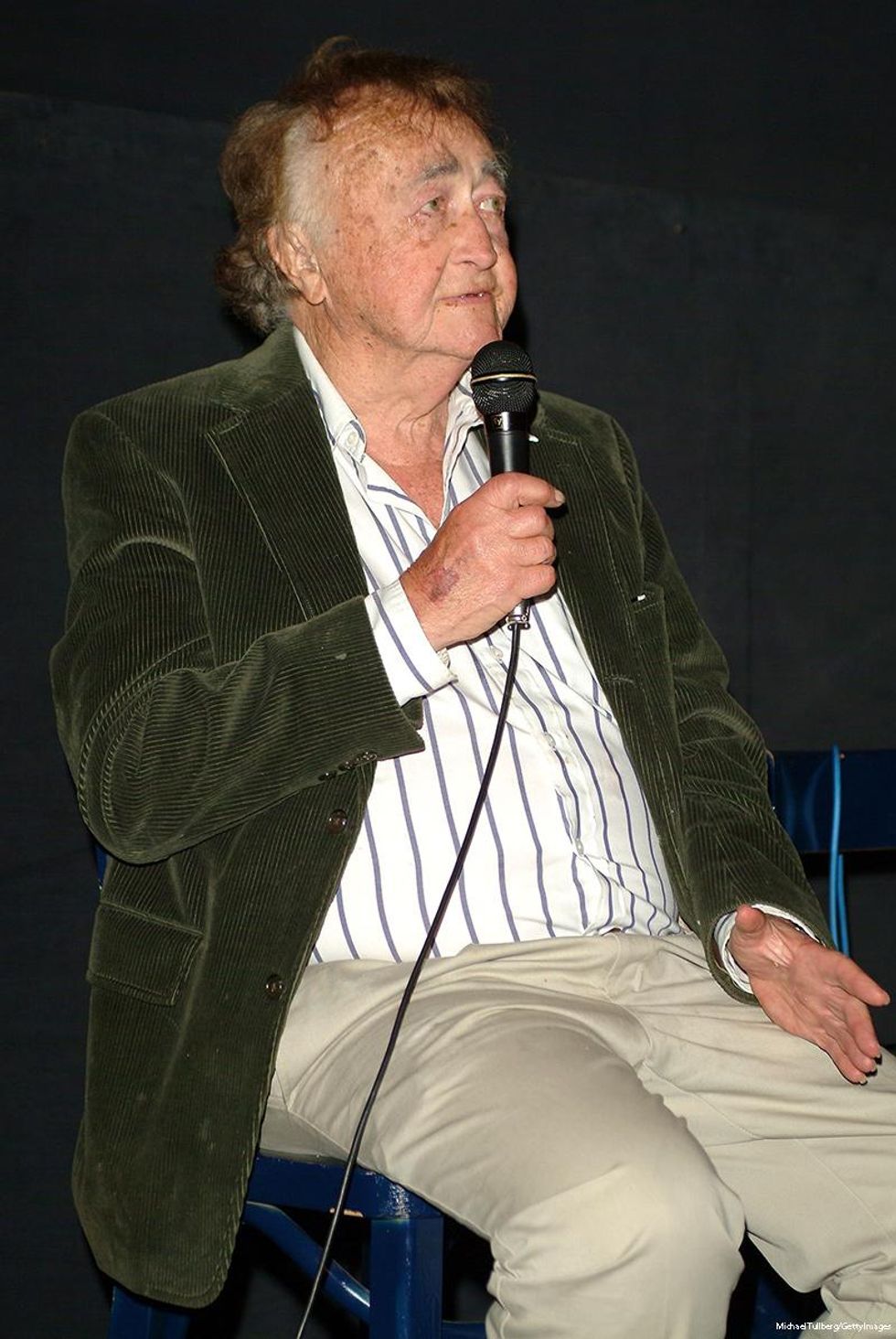
Curtis Harrington (Born: Sept. 17, 1926 - Died: May 6, 2007) started out writing film criticism while making own short films starting in 1942 with "The Fall Of The House Of Usher". After he met Kenneth Anger, the pair formed the indie film distribution company Creative Film Associates and Harrington worked as Anger's cinematographer on the short "Puce Moment." Harrington was an occultist and admirer of Crowley himself.
Harrington's independent filmmaking continued throughout the 1950s and in 1956 he made the documentary short "The Wormwood Star'' about Marjorie Cameron, actress and artist, who also starred in Anger's "Inauguration To The Pleasure Dome". Harrington also made a fantasy horror feature that starred Dennis Hopper and Cameron called "Night Tide". He proceeded to work throughout the 60s and 70s in horror films, his most famous being "Whoever Slew Auntie Roo", with Shelley Winters, "Queen of Blood", that starred John Saxon, Basil Rathbone and Dennis Hopper, and "What's The Matter With Helen", and in television, where he directed episodes of "Baretta", "Charlie's Angels", and "Wonder Woman" and TV movies like "Devil Dog: Hound Of Hell". He was a friend of James Whale and was the key person in the preservation of Whale's film "The Old Dark House". Harrington was an advisor on the film made about the end of Whale's life, "Gods And Monsters'' and had a small part in the film. The Academy Film Archive has preserved his films "Night Tide" and the shorts "On The Edge" and "Picnic".
Harrington confirmed his sexuality in his autobiography that told of his first homosexual experience in high school with a football player. Harrington said, "I knew immediately, with a horrible kind of prescience, that I was doomed to never again have such an intense experience of passion, and that I would feel an emptiness because of it for the rest of my life. Indeed, the bleakness I felt at the center of my heart thereafter was never to be relieved."